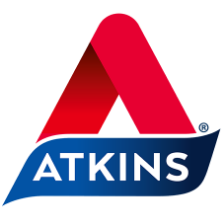- Home►Get inspired►Articles►protein
Protein – all you need to know about protein


Scroll directly down to

This article will help you to understand what protein is, the best sources of protein and which foods are rich in protein. We’ll also discuss any negative effects of having too much protein and whether this macronutrient can be the key to weight loss.
What is protein?
Protein is a macronutrient which is found in foods such as meat, fish and; in smaller amounts; in other foods such as nuts. Protein is essential for many functions in the body and is essential for skin, bones, hair and teeth as well as vital organs.
Protein is essential for building muscle mass and for the repair of damaged tissue, whether through exercise or otherwise.
Protein is made up of amino acids and these amino acids join together to form the many proteins in your body. In short, eating protein is important as it’s an essential nutrient that your body needs.
What are the best sources of protein?
The best sources of protein come from animal sources such as lamb, beef, and chicken or from fish and eggs. You can also get smaller amounts of protein in other foods such as legumes or nuts – however these do not contain all 9 essential amino acids and are therefore called ‘incomplete’ proteins. Animal sources of protein are complete so provide everything the body needs for repair and regrowth.
There are 20 amino acids, 9 are essential and 12 are non-essential. Essential amino acids are not produced by the body and must be taken through food or supplementation. Non-essential amino acids are produced by the body naturally.
You can also get vegetarian sources of protein from soya, chickpea or pea. Vegetarian sources of protein tend to be incomplete but you can combat this by eating 2 or more sources of protein together, to make it complete – such as rice and beans.
Some people choose to supplement to increase their protein intake, many opting for protein powders which come in either non-vegetarian whey protein, or vegetarian sources such as soya protein or pea protein powders.
Start on Atkins today and receive support, tips and meal plans for free!
Can protein help with weight loss?
The answer is yes and this is because protein is more naturally satisfying and fills you up for longer. Eating a higher protein diet means you’ll feel less hungry and less likely to reach for unhealthy snacks.
Protein only has 4 calories per gram, compared to 9 grams for fat, so you naturally eat fewer calories when you have more protein. Carbohydrates also contain only 4 calories but they cause blood insulin spikes, which can cause food cravings, whereas protein food stabilise blood sugar levels.
Eating protein also makes the body produce more hunger reducing hormones and the ‘thermic’ effect of protein is higher than carbs or fat, this means your metabolic rate is raised by eating protein foods.
What’s the best protein for weight loss?
Complete proteins are the best sources and tend to contain more protein, with fewer carbohydrates. Some animal proteins contain a higher level of dietary fat, such as fattier cuts of meat like lamb, or fattier fish such as mackerel or salmon.
Here are some of the best sources of protein:
- Meat such as chicken, pork, beef, lamb or turkey
- Fish such as cod, salmon, mackerel etc.
- Eggs cooked any way (avoid frying if eating lower fat)
- Dairy foods such as Greek yoghurt, milk, cheese
- Legumes such as beans, chickpeas
- Nuts & seeds
- Protein powders such as whey protein, casein protein, soy protein or pea protein
Start on Atkins today and receive more meal plans for free!
Start on Atkins today
Do you want to lose weight or maintain your weight? Atkins is there to help you!
Sign me up for Atkins
